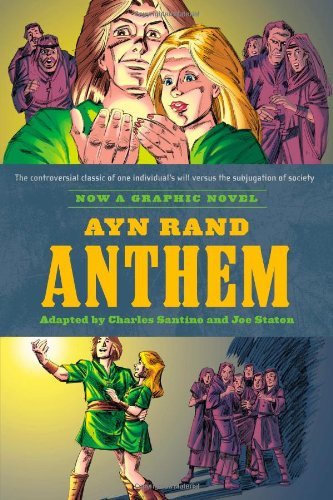
The book's conclusion is an uplifiting victory, but only if you accept the idea that everyone in the civilization which Equality upturns shares the same definitions of personal liberty and freedom. Although she ultimately follows him as he rejects their society, one wonders if she's following him because she genuinely believes he's right or because he's handsome and she's seventeen. At no point is an understanding of the core civilization given beyond "It's Bad." (What's ironic is that one of the most likely consumers of this adaptation will be public libraries, themselves a form of socialist institution- although not one you'll find mentioned anywhere in the simplistic world of the novella.) The love interest, Liberty 5-3000, has no real characteristic beyond being pretty and waiting for Equality 7-2521 to give her a direction in life. The characters are really stock representations in a very exaggerated portrayal.

More of an anti-collectivist folktale than an actual novel, it concerns an inhabitant of an anti-utopia where there is no "I" only "We." The hero, named Equality 7-2521, discovers the remnants of a greater society, and comes to reject his society and leave to form the basis of a new way of living, centered on the word "I."Īlthough it's definitely part of the spectrum of political sci-fi alongside works like 1984, Fahrenheit 451, and We it's not the most detailed and nuanced argument in Rand's repertoire. Anthem is one of her shorter works, originally conceived of as a theatrical play while she was a teenager in Stalinist Russia. The writing in question is Anthem, adapted by Charles Santino and Joe Staton, published by New American Library.


 0 kommentar(er)
0 kommentar(er)
